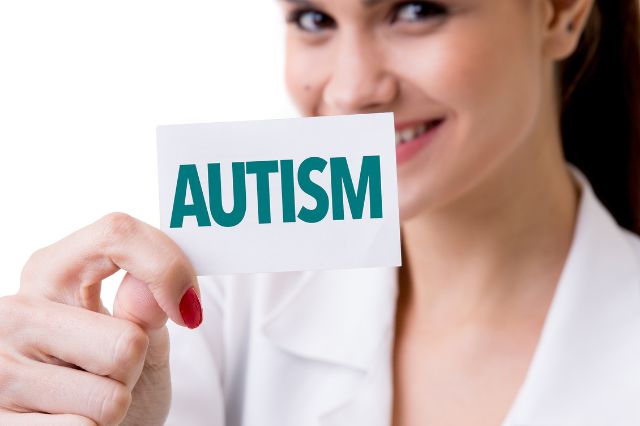Autism is a complex and often misunderstood disorder, with a wide range of symptoms and characteristics that can vary greatly from person to person. The autism statistics and facts speak for themselves. Autism affects an estimated 1 in 54 children in the United States alone, making it one of the most prevalent developmental disorders.
Despite increasing awareness and understanding in recent years, there are still many misconceptions and stereotypes surrounding autism that continue to perpetuate harmful and inaccurate beliefs. In this article, we will delve beyond the stereotypes and debunk some of the most common misconceptions about autism. So let us move beyond the stereotypes and delve deeper into the reality of autism.
Autism Is a Spectrum Disorder
It is important to recognize that autism is a spectrum disorder, meaning that it presents differently in each individual. The term “spectrum” refers to the wide range of symptoms and behaviors that can be associated with autism, and the severity of these symptoms can vary greatly from person to person. This means that there is no one set of characteristics that define autism, and individuals on the spectrum may have different strengths and challenges.
It is crucial to understand and recognize this diversity within the autism community in order to avoid painting a narrow and inaccurate portrayal of the disorder. By acknowledging the spectrum nature of autism, we can move beyond stereotypes and better support individuals with autism.
Each Individual with Autism Is Unique
It is crucial to understand that each individual with autism is unique, with their own set of strengths, challenges, and needs. While there may be some commonalities among individuals on the autism spectrum, it is important to recognize and celebrate individual differences. No two people with autism are exactly alike, and it is important to avoid generalizations and stereotypes.
By recognizing and valuing the uniqueness of each individual with autism, we can better support and empower them to reach their full potential.
Autism Is not Caused by Vaccines
Numerous studies have found no association between receiving vaccines and developing autism, and the original study that sparked this belief has been discredited and retracted by the scientific community. It is important to understand that autism is a neurodevelopmental disorder with a strong genetic component, and vaccines do not play a role in its development.
By perpetuating this false belief, we only further perpetuate harmful stereotypes and misinformation about autism. Instead, let us focus on educating ourselves and others about the true causes and experiences of autism, and work towards creating a more inclusive and understanding society for individuals on the autism spectrum.
People with Autism Can Succeed
It is a common misconception that people with autism cannot succeed in life. Unfortunately, this stereotype often leads to individuals on the autism spectrum being overlooked or underestimated in various aspects of life, from education to employment. However, it is essential to recognize that autism is a spectrum disorder, and each person with autism is unique and has their own strengths and abilities.
With the right support and accommodations, individuals with autism can thrive and achieve their goals, just like anyone else. It is crucial to move beyond stereotypes and see individuals with autism for who they are, not just their diagnosis. By creating a more inclusive society and providing opportunities for individuals with autism to showcase their talents and skills, we can break down the barriers and allow them to reach their full potential.
Autism Is not a Mental Illness
It is crucial to understand that autism is not a mental illness. It is a neurodevelopmental disorder that affects communication, social interaction, and behavior. While individuals with autism may face challenges in certain areas, they also possess unique strengths and abilities. It is important to recognize and nurture these strengths, rather than focus solely on their challenges.
By understanding and accepting autism as a part of human diversity, we can create a more inclusive society that supports individuals with autism in reaching their full potential. Let us move beyond stereotypes and embrace the diversity and abilities of individuals with autism.
Communication Challenges Vary Among Individuals
It is a common misconception that all individuals with autism have the same communication challenges. In reality, communication difficulties can vary greatly among individuals with autism, as each person’s experience with the disorder is unique. Some may struggle with verbal communication, while others may have difficulty with nonverbal cues and understanding social interactions.
It is important to understand and recognize these differences, as well as provide individualized support and accommodations to help individuals with autism effectively communicate and navigate social situations. By debunking the stereotypes surrounding autism, we can create a more inclusive and understanding environment for those with the disorder.
Autism Is not a Result of Bad Parenting
It is important to address and dispel the misconception that autism is a result of bad parenting. This outdated belief perpetuates harmful stereotypes and places blame on parents rather than recognizing autism as a neurodevelopmental disorder. Research has consistently shown that autism is a result of genetic and neurological factors, not parenting style or behavior.
Additionally, this belief ignores the experiences of parents who have children with autism and are dedicated to providing the best care and support for their children. By understanding and accepting the true causes of autism, we can move towards creating a more inclusive and understanding society for individuals on the spectrum.
Early Intervention Is Crucial
It is crucial to recognize and intervene early in the lives of children with autism. Research has shown that early intervention can greatly improve outcomes for individuals on the spectrum. This means providing support and therapy as soon as possible, ideally before the age of 3.
Early intervention can help children with autism develop important skills and abilities, and can also support their families in understanding and managing their child’s needs. It is important to remember that autism is a complex neurodevelopmental disorder that requires professional support and understanding, rather than blaming parents or caregivers.
By recognizing the importance of early intervention, we can create a more inclusive and supportive society for individuals on the autism spectrum.
Conclusion
It is important to recognize that autism is a complex and diverse spectrum, and it is not defined by stereotypes or misconceptions. By educating ourselves and debunking common misconceptions, we can create a more inclusive and understanding society for individuals with autism.
It is crucial to approach each individual with autism with empathy, respect, and a willingness to learn and understand their unique experiences. Together, we can break down barriers and create a more accepting and supportive world for those with autism.






